|
A good question. If you are in a hurry to be great, it is going to be difficult as greatness takes a long time. Furthermore, today the level and depth of training in all fields of skilled physical activity, like sports, and music, is much greater than the past. Yesterday's heroes wouldn't make the team today. So, what worked 50 years ago, won't work today. However, consider the roles of the following: humility, patience, aural training, tutors, learning to practice, realistic goals.
I'm available to help Just call me. David Revised 2024
0 Comments
1. Immerse yourself in jazz music. The more you listen, the quicker the journey. This is because you need to be able to identify when you’re playing correctly. Adopt the listening habits of a musician. There are numerous resources available online, such as blogs and courses, that can guide you on how to listen effectively. For instance, consider the audio lecture series “Elements of Jazz”. 2. Commit three songs to memory: a blues, a ballad, and a standard. These will serve as the foundation for applying your expanding knowledge. 3. Master the fundamental elements of Jazz. A good start is the major scales for the three songs you’ve memorized, and the jazz chords played in broken inversions. There are additional aspects to learn, but we’ll tackle those later. 4. Experiment with the melody. Pay attention to how the greats have “interpreted” the melodies on the ballad and standard. Try to emulate them. 5. Develop your instrumental skills to match the level of the jazz solos you aim to perform. 6. Identify a brief sequence, perhaps three or four notes, within a jazz solo you admire on YouTube. Listen to it repeatedly until you can sing it, then locate it on your instrument. The “licks” you learn this way will become uniquely yours. I can guide you on how to transpose these licks onto the other chords of your three songs. Here is a demonstration transposing a 3 note lick in “Autumn Leaves.” 7. Analyze the solos of other musicians on YouTube. Search for something like “Autumn Leaves Transcription” and explore the results. Try to find multiple versions of your three songs. 8. Focus on the basics before diving into more complex techniques. Ensure you can play a12 bars blues without losing your place before moving on to complex tunes. 9. Deepen your understanding of music theory. High-level jazz involves applying theory in real-time at a fast pace. 10. Invest time in ear training. It’s challenging to play what you can’t hear. Remember, I’m here to assist you with each of these ten steps. Call me David It's a honor and thrill to teach piano. After all these years I still look forward to going to work each day making dreams come true.
I'd be pleased to help you find your way. David It is fun.
It’s fun if you are young and playing with your mom, it’s fun if you are older and playing with your spouse. The experience of duet playing is social bounding. The piece teaches so many skills to a neophyte.
If you like to be part of this, call me. David It might. If the instrument you play now is uneven, out of tune, and has missing notes, joy will be dampened. Chopin is reported to have said, “play the best instrument you can when learning.”
Here are other thoughts on staying in the game:
These are problems all musicians/students must deal with from time to time or in these times. David "A landmark in jazz studies, 'Thinking in Jazz' reveals as never before how musicians, both individually and collectively, learn to improvise. Chronicling leading musicians from their first encounters with jazz to the development of a unique improvisatory voice." Amazon description.
A worthwhile read for every jazz student for the first hand recounting from master jazz musicians on how they learned to improvise. David Classical piano Grades 1-2 Is it possible to make progress in 10 minutes? Of course. At some point longer practice sessions will be required, but with planning and focus you can accomplish a lot in a shorter time. Remember playing an instrument is fun when we succeed at it. And can clearly see our progress over time. What practice is: Learning through thoughtful repetition how to play our instrument so that over time we progress towards our goal however modest or lofty that may be. The goal is to accomplish a micro step forward each time we sit to practice. The size of this micro step varies on the time available. What practice is not: Messing around playing stuff we know is not practicing, it is playing. This is not a negative, but the reason we practice in the first place. In conclusion don’t feel guilty messing around, just don’t confuse it with practicing. Fool around without guilt. Have fun. Session 1
Have fun. David The "breakfast piano minutes" are usually created in about 10 minutes 1st thing in the morning.
If you are feeling stale, try the following exercises.
If I can help you, let's chat. Best, David An intermediate player can play some tunes with a band or play along track. They usually have to read the music though from a fake book due to a lack of confidence. They are keen to move it up a notch. They feel overwhelmed with the amount of possibilities in a practice session.
Below are some ideas on how to spend your time. Yes, it is a lot, but over the course of a week and little bit of each can be worked on. Over time your experience will accumulate. Have fun.
6. Repertoire work, your new pieces 7. Theory work 8. Singing intervals 9. Jamming with tracks, apps, or original recordings. 10. Repeat step one. Acquiring fluency in the “language” of Classical Music Two presuppositions: First: We all play what we hear in our heads. Second: Beautiful music is “heard” in our heads and our hands obey. What we hear... What we “hear” in our mind is a combination of experience, education, and reflection. Experience includes all the listening opportunities we’ve had in life. (My advice is start early) When the our listening experiences are linked to a moment of high emotional arousal: a concert trip with a beloved family member, attending a concert with a date, the impression is going to last. Impassioned listening I call it. For links to studies click this sentence. Education is musical appreciation, music theory studies, ear training, analysis, and score study. Sophisticated music does not give up her charms easily. You must work for it. Piano students too often want to skip this stuff and get right to the good stuff. Believing that the score tells you all you need to know to create a beautiful performance is an unfortunate fallacy in piano education. It is just a bare minimum. Artistic insight and performance go way beyond the ink. Reflection needs to be deliberate. Another form of deliberate practice. It is listening with intent in the performance of a great artist and ourselves. Reading biographies, autobiographies, listening to podcasts, watching YouTube interviews, and concerts. Asking ourselves, “what is going on here?” “How did they do it?” What we can execute... What we can execute is all about deliberate practice, time, patience, and access to resources including teachers.
Now go practice, David |
You've got to learn your instrument. Then, you practice, practice, practice. And then, when you finally get up there on the bandstand, forget all that and just wail. AuthorI'm a professional pianist and music educator in West Toronto Ontario. I'm also a devoted percussionist and drum teacher. Categories
All
|
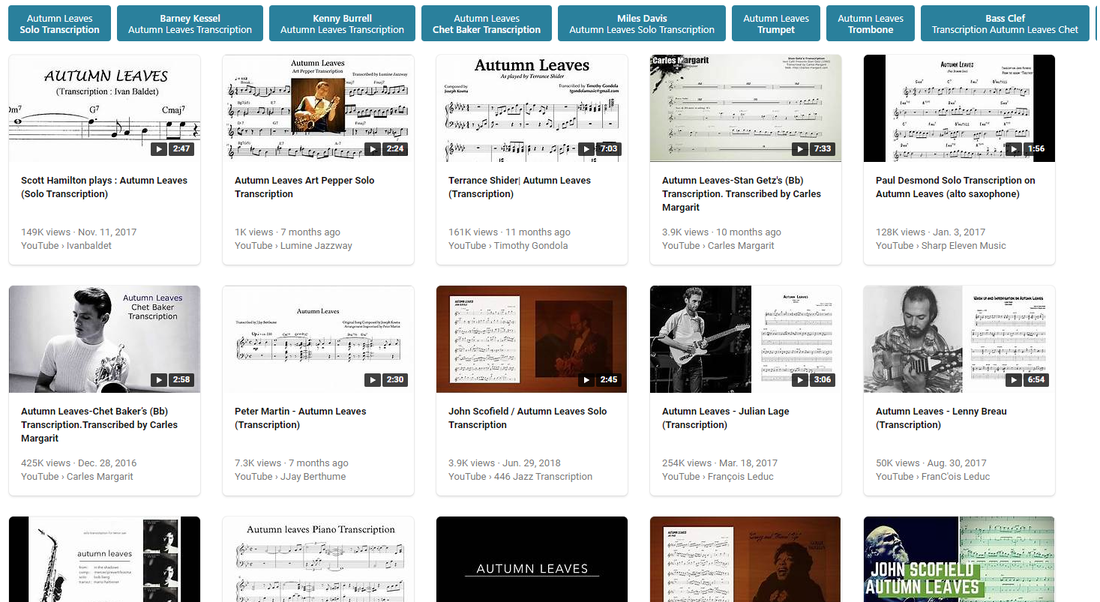
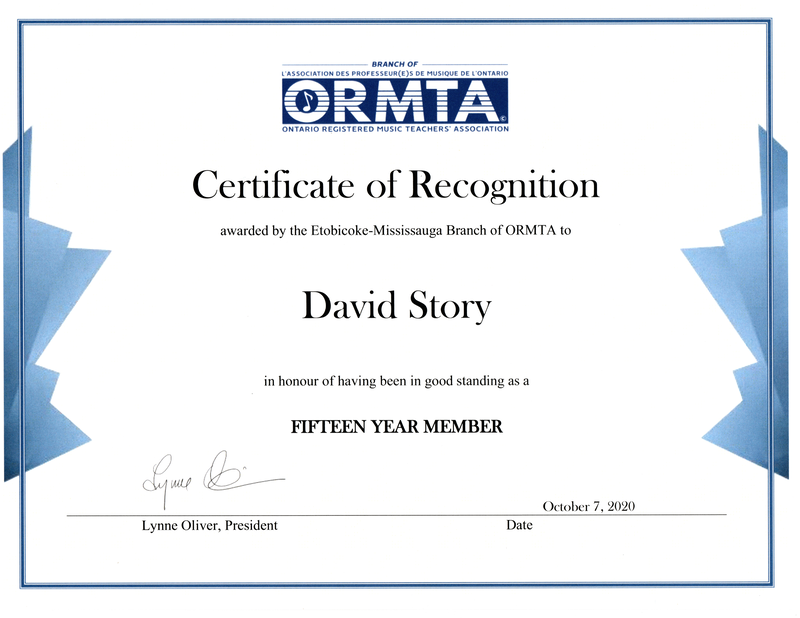
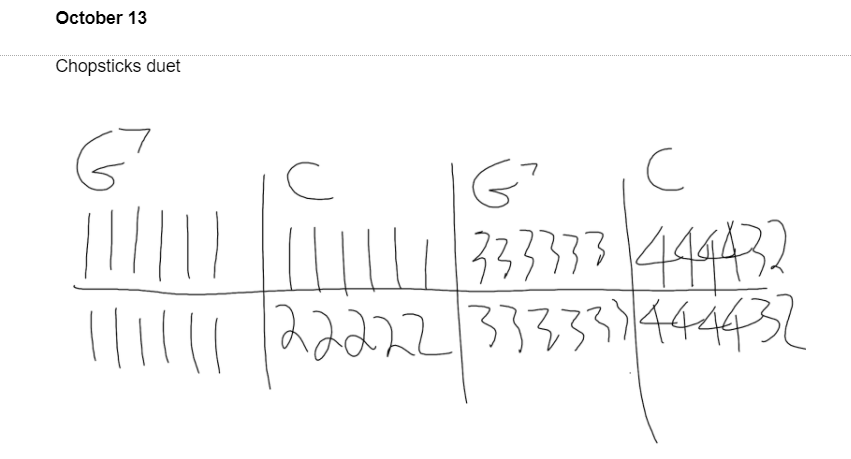
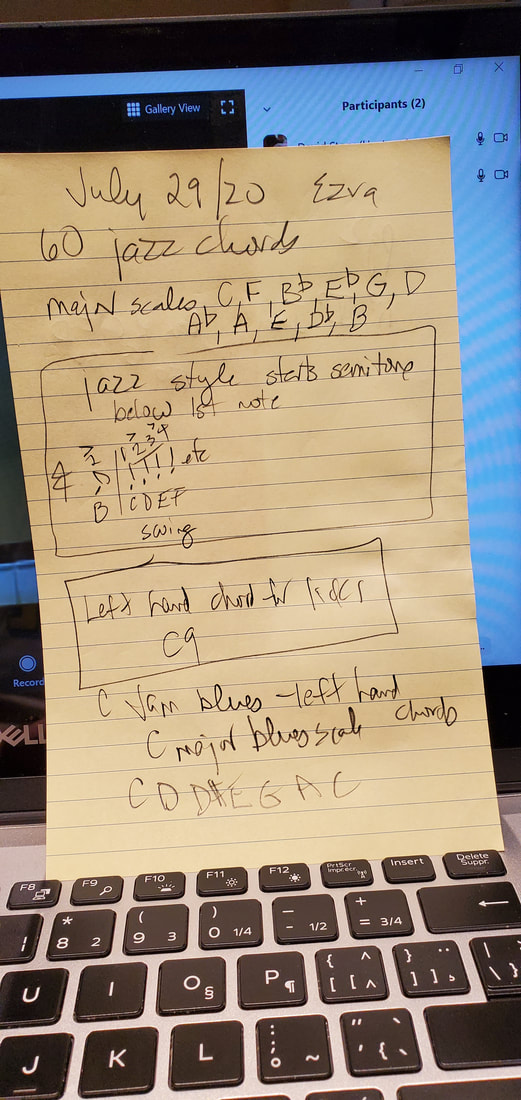
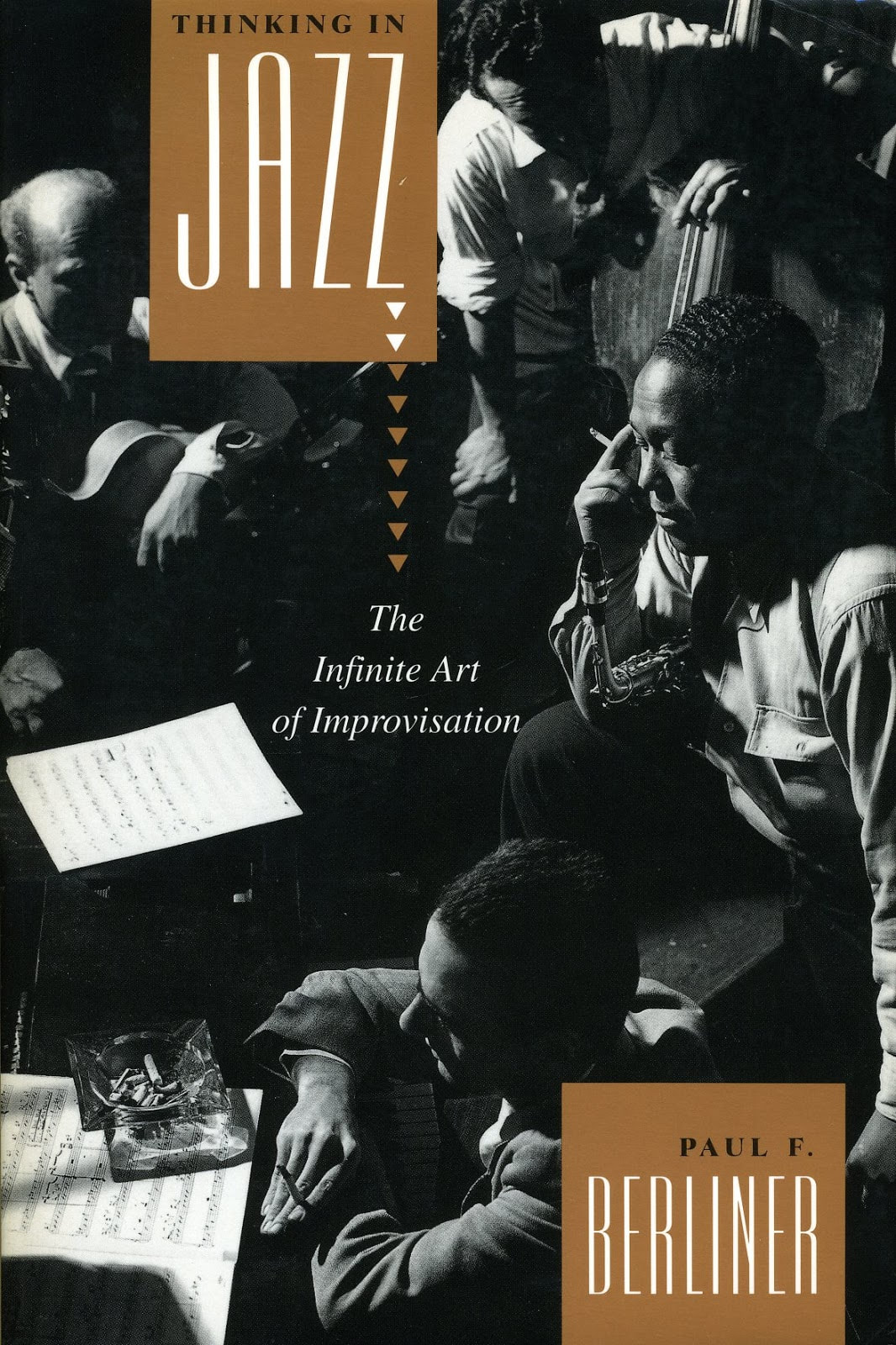
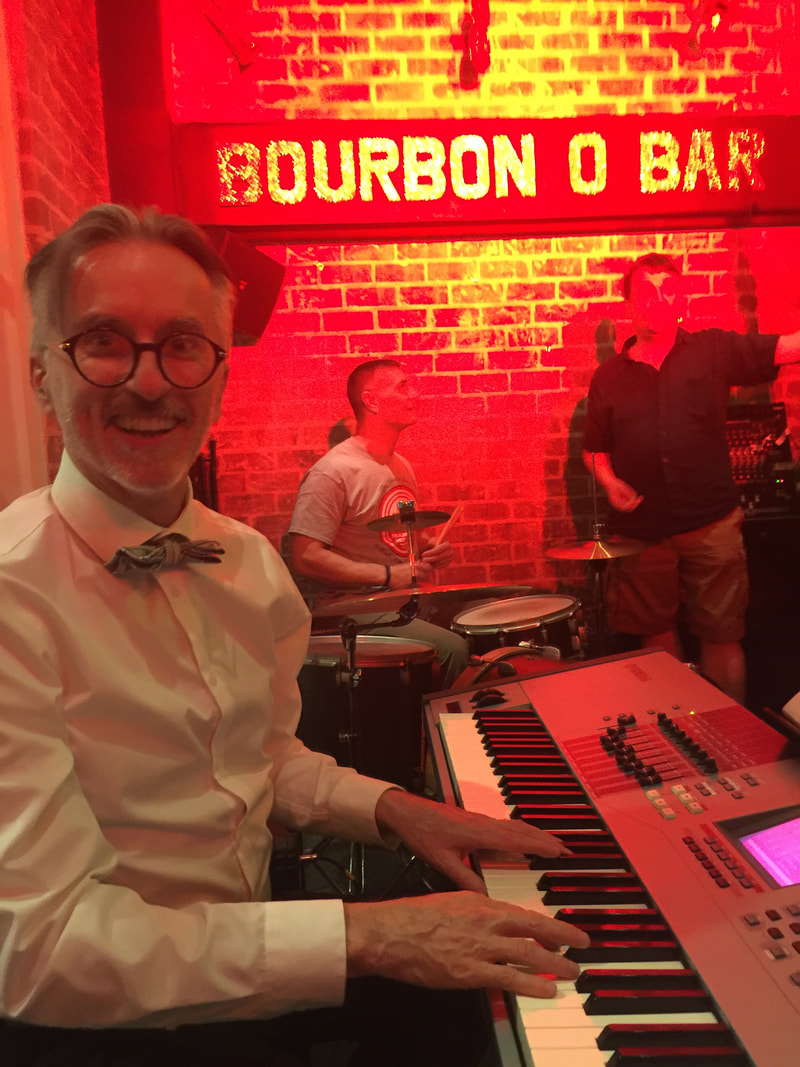
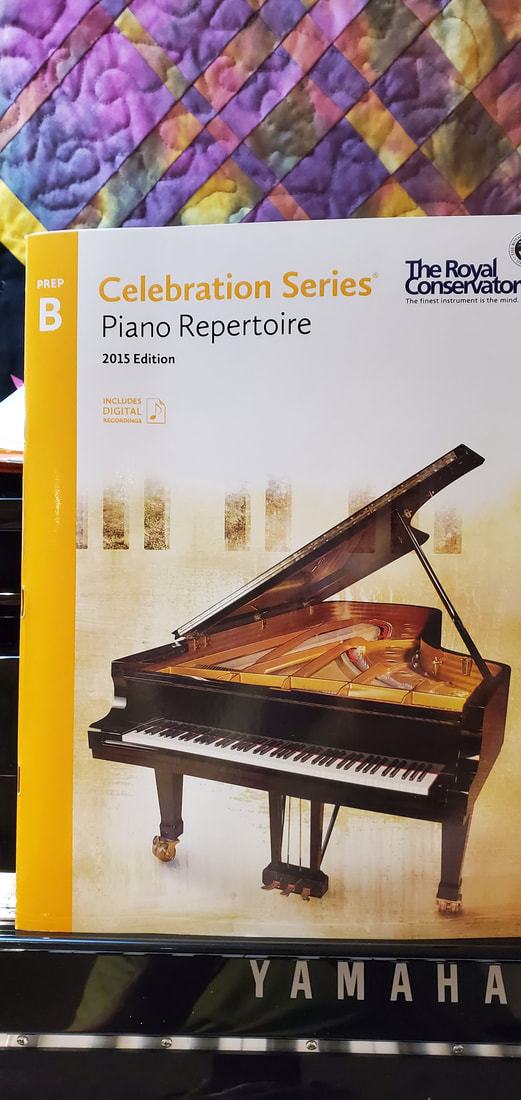
 RSS Feed
RSS Feed